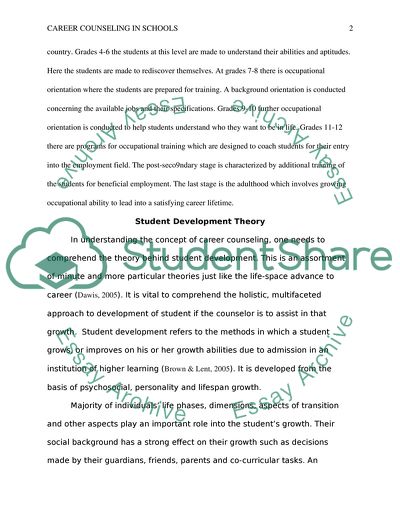Cite this document
(Career Counseling for Elementary, Middle and High Schools Term Paper, n.d.)
Career Counseling for Elementary, Middle and High Schools Term Paper. Retrieved from https://studentshare.org/education/1781883-career-counseling-for-elementary-schools-middle-schools-and-high-schools
Career Counseling for Elementary, Middle and High Schools Term Paper. Retrieved from https://studentshare.org/education/1781883-career-counseling-for-elementary-schools-middle-schools-and-high-schools
(Career Counseling for Elementary, Middle and High Schools Term Paper)
Career Counseling for Elementary, Middle and High Schools Term Paper. https://studentshare.org/education/1781883-career-counseling-for-elementary-schools-middle-schools-and-high-schools.
Career Counseling for Elementary, Middle and High Schools Term Paper. https://studentshare.org/education/1781883-career-counseling-for-elementary-schools-middle-schools-and-high-schools.
“Career Counseling for Elementary, Middle and High Schools Term Paper”, n.d. https://studentshare.org/education/1781883-career-counseling-for-elementary-schools-middle-schools-and-high-schools.


